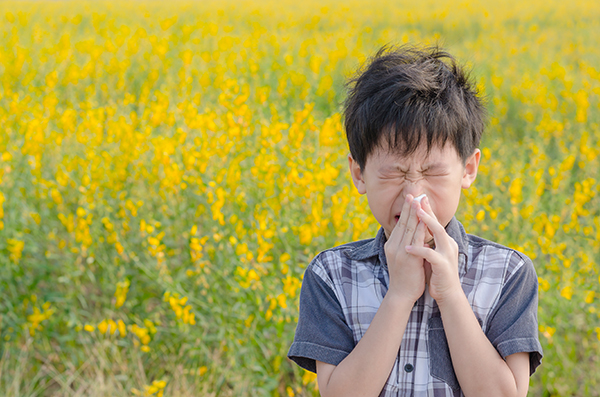Allergic conjunctivitis in children may have many different symptoms, including itchy eyes, water-borne or viscous secretions, eyelid swelling, red eyes, corneal edema and even visual impairment when it occurs. The diagnosis usually depends on inquiring the patient's history and physical examination.
Allergic conjunctivitis may occur in adults or children, especially in children with allergic constitution. When growing older, children's immune system will gradually mature due to the change of constitution, which may improve most of the allergic diseases.
With economic development and medical progress in Taiwan, the incidence of various infectious diseases has declined, but children's allergies have increased a lot. This may be related to the changes of the whole environment. The generation of allergy involves the combination of internal allergic constitution and external allergens.

Most of the allergens are transmitted in the air, but they may also be transmitted by physical contact. Most allergens are pollen, dust, dust mites, fungal spores, pet dander, etc. When the body encounters an allergen, the body produces histamine to fight against these foreign antibodies, and the result of histamine's interaction with the allergen is itching, redness and other eye symptoms.
It is impossible to cure allergic conjunctivitis completely, but reducing allergic stimulation is the best treatment. An ice compress and medication can be given during an attack. The patient's age, physical condition, current medication situation, disease scope, severity, duration of onset, tolerance to different treatments for children and personal medication experience should be taken into account in medication. Commonly used drugs are anti-histamine eye drops, because oral anti-histamine will have the side effect of sleepiness. The existing non-sedative anti-histamine will have anti-histamine efficacy but will not have sedative effect.
Most allergic conjunctivitis medicines contain traces of preservatives or steroids, which can cause eye damage if not used properly. The best policy is to improve your lifestyle, reduce your exposure to allergens, and ask a doctor to treat your illness.

